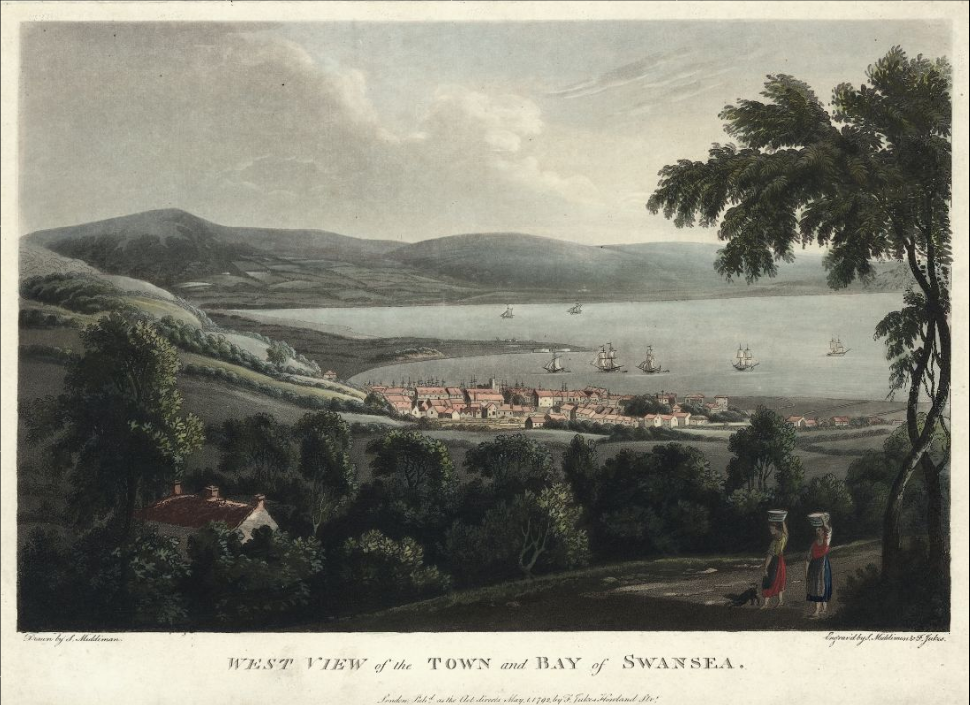Dr Sacks favourite activities:
playing the piano and writing books
He got a bachelor’s degree in physiology (1954) & medicine (1958) from Queens College Oxford. He did his house-year at Middlesex Hospital London in 1959 and was house-surgeon at Queen Elizabeth, Birmingham in 1960. Dr Sacks moved to the US to work at Mt Zion Hospital, San Francisco (1961–62), then a neurology residency at Uni of Calif.
playing the piano and writing books
Sacks moved to NY in 1965 for a fellowship at the Albert Einstein College of Medicine, becoming a clinical Prof of Neurology (1966–75). He also joined the charitable Bet Abraham Hospital NY as a staff neurologist (1966–2007), meeting patients who’d contracted a sleeping sickness, encephalitis lethargica, during a much earlier epidemic (1917-27). These patients had survived sleeping sickness only to develop a Parkinson’s that caused immobility, depression, speechlessness or catatonia! Dr Sacks gave them the drug L-dopa, emerging as a treatment for similar symptoms in Parkinson’s. His clinical work at Bet Abraham led to his book Awakenings (1973). This book, about a group of patients with atypical encephalitis, won widespread attention.
Sacks was led by Russia's neuropsychologist, Alexander Luria (1902–77). Luria's vital research was in linguistic aphasia, anterior lobe pathology, speech dysfunction and child neuropsychology. The two men never met, but they maintained a 5-year correspondence and in 1977, Sacks wrote his mentor’s obituary for The London Times.
Explore strange brain pathways in famous case histories like The Man Who Mistook His Wife for a Hat (1986), using his patients’ disorders to discuss the human condition i.e he carefully illuminated patients’ existential AND pathological conditions. Some critics called his blend of medicine & philosophy insightful eg The Independent of London called him the “presiding genius of neurological drama”. Reviewers praised his graceful prose.
Some critics found him infuriating, accusing Sacks of exploiting his subjects. Scientists said that his clinical stories over-emphasised the stories and under-emphasised the clinical. A London neuroscientist doubted whether Sacks had provided any scientific insights into the neurological conditions he had written about in his many books (Guardian 2005).
A million copies of Sack’s books were printed in the U.S and his accounts of neurological oddities were soon adapted for Hollywood, opera, theatre and literature. An opera based on The Man Who Mistook His Wife for a Hat premiered in London in 1986 and in the Lincoln Centre NY in 1988. Robin Williams portrayed a Sacks-like doctor in the film version of Awakenings (1990), along with Robert De Niro. Richard Powers based a central character on him in his novel The Echo Maker (2006). The Girl in the Letter (2018) and The Missing Daughter (2019) by Emily Gunnis did very well.
Recording personal experiences in volumes written for popular audiences did well. Having injured a leg in a mountaineering accident, he learned first hand how a physician’s dismissal of a patient’s condition hindered recuperation, as he told in A Leg to Stand On (1984).
Still recording the amazing circumstances of the patients he met and their remarkable adaptations, Sacks wrote Seeing Voices (1989). He explored the ways in which sign language provided the deaf with communication AND served as a discrete culture. In An Anthropologist on Mars (1995), he documented the lives of 7 patients living with difficult conditions including autism, and how they created functional lives.
Trips abroad were important. On his journey to Micronesia Sacks studied a population with a high incidence of colour blindness and to Guam to study a mysterious form of paralysis in The Island of the Colourblind (1997). He presented further case studies in The Mind Traveller (1998), a programme produced for tv. The Mind’s Eye (2010) investigated the compensatory mechanisms employed by people with sensory disorders. Hallucinations (2012) recorded conditions from epilepsy and drug use, to sensory deprivation that caused hallucinations.
In 1989 Sacks won a Guggenheim fellowship for his studies of the influence of culture on the abnormal neurological processes underlying the rare inherited disease, Tourette Syndrome. Sacks also introduced Asperger Syndrome to lay audiences, humanising his patients.
The relationship between music and the mind
This skilled pianist analysed the relationship between music and the mind, and of patients with conditions relating to music in Musicophilia: Tales of Music and the Brain (2007). He pointed to music’s ability to reach dementia patients, showing that music appreciation is hard-wired into the brain. Sacks believed Mozart made him a better neurologist!
Though Sacks remained in the U.S, he never gave up British citizenship and he was made Commander British Empire in 2008. Other awards included honours from Guggenheim Foundation, American Academy of Arts & Letters, National Science Foundation and Royal College of Physicians.
He wrote up his adventures On The Move (2015). And he also discussed his sexual identity for the first time, since realising he was gay in his teens. He settled into a LONG period of celibacy that lasted 35 years before he met and fell in love with writer Bill Hayes in 2008.
Dr Sacks remained active with age. In 2007, at 74, he accepted an interdisciplinary teaching position at Columbia. From 2012–15 he returned again to the New York Uni School of Medicine in Neurology. And despite the enormous success of his books, he never gave up his “unglamorous” medical practice, because it provided him with data and because he loved working with patients.
Though Sacks remained in the U.S, he never gave up British citizenship and he was made Commander British Empire in 2008. Other awards included honours from Guggenheim Foundation, American Academy of Arts & Letters, National Science Foundation and Royal College of Physicians.
He wrote up his adventures On The Move (2015). And he also discussed his sexual identity for the first time, since realising he was gay in his teens. He settled into a LONG period of celibacy that lasted 35 years before he met and fell in love with writer Bill Hayes in 2008.
In Feb 2015 he announced his own terminal cancer. The ocular melanoma had spread to his liver, and he died at 82. His essays were published posthumously as The River of Consciousness (2017). The documentary Oliver Sacks: His Own Life was published in 2019.



.jpg)






















































27 comments:
Never heard of the man but he sounds interesting
Such a talented man who lives the life to the fullest
Living as a celibate for most of his long life left him plenty of energy to pursue his other passions. But it must have been very lonely.
A wonderful read of an interesting man.
Thank you Hels.
Jo-Anne
neither had I, until my parents' rabbi in their care home asked me to examine the connection between beloved old music and the dementing mind. Even residents who had forgotten how to speak properly could still remember the words and tunes of songs they loved back in the 1930s and early 40s.
I hadn't realised the extent of his work.
Deb
Sacks was clear about his sexual preference in his late teens, but was afraid his career would end in disgrace if people knew he was gay. Plus he was lacking confidence in himself, despite being a genius. So he remained celibate until very late in life when he was happy to acknowledge his partnership with Bill Hayes.
As so often, I've learnt about a high achiever. I am a little sceptical about him being gay and 35 years of celibacy. The best experiences happen when you are younger and your drive is strong.
Fun60
I am coming to your place :)
My first introduction to Dr Sacks' writing was "Musicophilia: Tales of Music and the Brain" (2013). Each story dealt with people who'd had their lives seriously impacted by music.
Most stories were uplifting but some told cases of people who suffered from music.
Margaret
most of us are lucky if we have ONE area of skill and/or one passion. In medicine alone, Dr Sacks researched and wrote about Tourette’s syndrome to migraine, autism, parkinsonism, hallucinations, epilepsy, phantom limb syndrome, music therapy, schizophrenia, retardation, Alzheimer’s and deaf sign language.
jabblog
Who knew how talented Sacks' piano playing was? He was a classically trained pianist of some skill, skilled enough learn the repertoire. His love for classical music came out in his book; his references to classical works were detailed and knowledgeable and he loved the great masters.
Diary of an Autodidact
https://fiddlrts.blogspot.com/2017/06/musicophilia-by-oliver-sacks.html
roentare
just listing his published books exhausted me:
The Man Who Mistook His Wife for a Hat
Musicophilia
An Anthropologist on Mars
Awakenings
Seeing Voices
The Island of the Colourblind
The Mind’s Eye and Hallucinations
Migraine
A Leg To Stand On
Oaxaca Journal
Uncle Tungsten: Memories of a Chemical Boyhood and
On the Move: A Life.
The River of Consciousness
Gratitude
Everything in Its Place
Andrew
everyone wants to be a clever high achiever with a name that is known around the world. But how many people are really well-known beyond their own front yard?
Of course Oliver Sacks paid some high prices for achieving his goals eg constant anxiety, a horrible ocular melanoma and hallucinations, but he would have seen it as totally valuable in the overall scheme of things.
Very interesting.
He is on my required reading list. I have heard of his "The Man Who Mistook His Wife for a Hat" but never knew it was turned into a film.
The man seems to have been a Genius: skilled pianist, versatile doctor, writer. Ive met personally someone (still alive) whom I considered a genius. He was a pianist and teacher of piano, a linguist and a professor of linguistics at the university, writer. He was no doctor, as far as I know.
Thanks a lot for this post.
I read it carefully, from the beginning it reminded me of the movie.
This man offered a lot to the university community as well as humanity.
I believe there is definitely a connection between music and learning.
Be well and have a beautiful week!
Liam
"Dr Sacks recounts the case histories of patients lost in the apparently inescapable world of neurological disorders: people afflicted with fantastic perceptual and intellectual aberrations; patients who have lost their memories and their pasts; who are no longer able to recognise people and common objects; who are stricken with violent tics and grimaces or who shout involuntary obscenities; whose limbs have become alien; who have been dismissed as retarded yet are gifted with uncanny artistic or mathematical talents. These strange and brilliant tales remain, in Sacks’ sympathetic telling, deeply human. They are studies of life struggling against incredible adversity, enabling us to enter the world of the neurologically impaired".
https://www.oliversacks.com/oliver-sacks-books/the-man-who-mistook-his-wife-for-a-hat/
I wonder if any reader who has seen the film can give us some feed back.
Katerina
the connection between _maths_, _piano_ and _foreign languages_ is discussed all over the place. This probably occurs because all three skills rely on patterns to create structure and coherence. Autism doesn't weaken the links at all; in fact people with special needs often have a preference for sequences .. which give them predictability.
DUTA
Dr Sacks was certainly a genius, starring in the areas that he was passionate about. This did not mean that he didn't have mental and physical issues, nor did it mean he didn't obsess about constant competitive sports and constant travels. When did he do it all, since he was writing and publishing all day and night?
Your friend sounds to have similar skills and passions: a pianist himself, a teacher of piano, a linguist himself and a professor of linguistics at the university, plus a writer. This is not a coincidence, I am thinking.
I thought I recognized that name. Not that I have read any of his books, but I had read/saw some interviews with him. It was great to read about him to learn more about who he actually was Thanks. And happy new week.
Erika
I had never seen an interview with Dr Sacks, so I assumed he was anxious about his looks or his speech. I assumed he was much more confident about his writing.
Wrong about his looks, at least. He was a very handsome man, even in old age.
He was an amazing Character and I very much think that he made the human mind interesting to the ordinary man thus opening up pathways to tolerance for difference from "the norm" . His service to humanity may not have been in hard medical research but it certainly changed us for the better in ways' that "ivory tower science" doesn't because most of us cant relate to it without losing attention.
mem
agreed. His initial medical observations were from face to face contact in his medical practice, and may not have been based in the hard medical research that many other doctors demanded. Indeed his careful process of observation and reflection was often ridiculed by his contemporaries.
Conversation (2nd Sept 2015) said that for Sacks, his was both a scientific method and a literary device. He believed his science books were ways to transmit original, compelling scientific ideas to literate audiences. To expand their thinking beyond ivory tower science.
What an amazing person. I had heard of him but had no idea of the extent of his work. He chose a very interesting and difficult topic to study in neurology.
diane
you are not the only one, alas. I did a 4 year undergrad degree in psychology and a 3 year master's degree in applied psychology, and never heard of Dr Sacks. In the 1960s and early 70s, we were still studying Freud and Carl Jung.
Despite some negative comments about Sacks' work, it cannot be denied that he was a great populariser of neuroscience (perhaps in the same way that Richard Dawkins was a great public advocate of evolutionary biology).
bazza
that is true for most lay readers now, but how true was it for neurologists and scientific researchers during Dr Sacks' career? Thankfully his family was brilliant and supportive. His parents were both clever surgeons; British chief rabbi Jonathan Sacks was his nephew; and Israeli statesman Abba Eban was a cousin.
Post a Comment